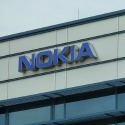
Also in today's EMEA regional roundup: Ooredoo seeks AI boost for 5G rollout; Sunrise-Liberty deal agreed; BT creates jobs; IoT and athletic performance.
Nokia has done the double with Telecom Egypt, landing contracts for both 5G and Internet of Things (IoT) development work. For the former, the pair hope to implement a 5G network and test relevant "use cases," while on the IoT front they plan to build what they claim is the first cloud infrastructure in Egypt intended exclusively for IoT services, using Nokia's Worldwide IoT Network Grid (WING) platform.
Qatar-based Ooredoo is drawing on the artificial intelligence know-how of P.I. Works to help accelerate the rollout of its 5G networks in the Middle East and North Africa after its success with the technology in Myanmar and Indonesia.
As expected, Switzerland's Sunrise has agreed to buy Liberty Global's Swiss unit, UPC, in a $6.3 billion deal that poses a clear challenge to incumbent Swisscom. In a statement, Sunrise said the deal secures the service provider access to to 2.3 million homes on its own fixed network infrastructure.
BT says it is creating an additional 1,600 apprenticeship and graduate jobs in areas that include engineering, cybersecurity and customer service. More than a fifth of these recruits will be based at BT's labs at Adastral Park, near Ipswich. In total, BT employs 82,800 people in the UK. (See BT looks more bloated than ever.)
Multicloud specialist UKCloud has landed a spot on the UK government's Data and Application Solutions (DAS) framework, which is basically a list of approved technology suppliers to the public sector intended to ease the procurement process.
Ericsson has landed a multi-year 5G deal with U.S. Cellular, under the terms of which it will supply the operator with 3GPP standards-based 5G New Radio (NR) hardware and software.
Telia is collaborating with the Swedish Olympic Academy on a project that aims to help athletes perfect their technique through the use of IoT and 5G technology. For example, sensors in shoes are able to provide real-time performance feedback to the athlete, but require a fast network to be able to do so. The idea is that this instantaneous feedback can replace after-the-event video analysis, better influencing the athletes' "muscle memory."
Deutsche Telekom has launched a campaign for digital inclusion, #Dabei ("take part"). According to a study cited by the operator, some 13 million people in Germany are in "digital no man's land," unable or unwilling to participate in the digital world.
Germany's ADVA has launched its expanded FSP 3000 open line system (OLS) for data center interconnect. According to ADVA, the OLS removes the restrictions imposed by many of today's closed systems and offers network operators more flexibility thanks to its modular design.
— Paul Rainford, Assistant Editor, Europe, Light Reading
Read more about:
EuropeAbout the Author(s)
You May Also Like












